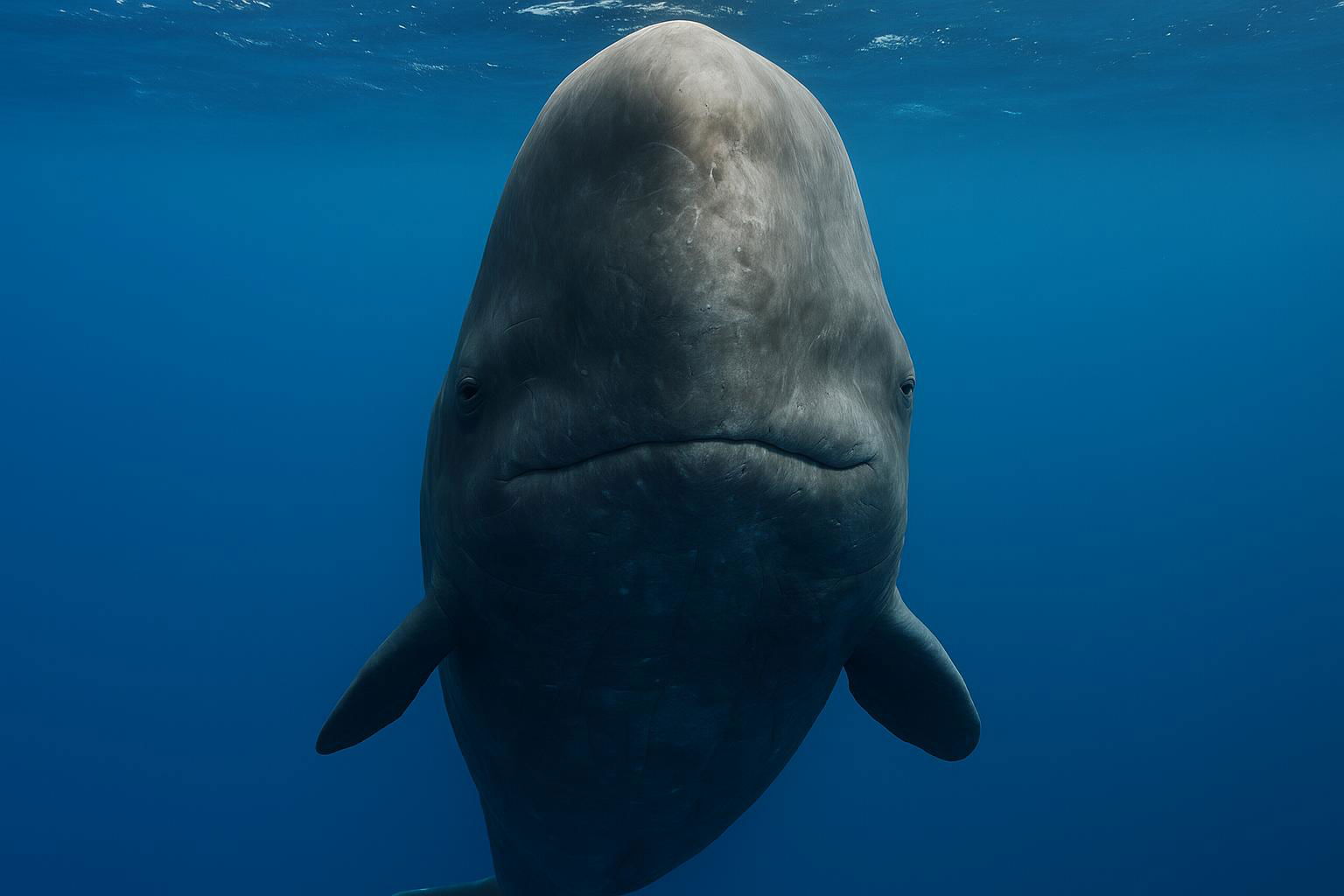
Sperm Whale
Physeter macrocephalus
The Sperm Whale (Physeter macrocephalus) is the largest toothed predator on Earth and one of the most iconic marine mammals. These magnificent creatures can grow up to 67 feet in length and weigh as much as 57 metric tons, with males generally larger than females. Sperm whales are easily recognized by their massive, block-shaped heads, which comprise about one-third of their body length and house the largest brain of any creature known to have lived on Earth.
They feature a distinctive wrinkled skin and a single blowhole located on the left side of their large foreheads. Sperm whales are deep divers, capable of reaching depths of over 3,280 feet and holding their breath for up to 90 minutes in pursuit of their primary prey: squid, including the elusive giant squid.
Social and intelligent, sperm whales live in matriarchal groups known as pods, typically consisting of females and their young, while mature males tend to roam more solitarily or in smaller bachelor groups. Their ecosystems span all the world's oceans, although they prefer the deep waters away from coastlines. Vocalizations play a crucial role in their communication and echolocation, with the whales producing a range of clicks and other sounds. Due to their fascinating characteristics and pivotal role in marine environments, sperm whales are a subject of ongoing scientific research and conservation efforts.

 All Species & Breeds
All Species & Breeds
 Highland Cattle
Highland Cattle
 Miniature Donkeys
Miniature Donkeys
 All Species Directory
All Species Directory
 Highland Cattle in Virginia
Highland Cattle in Virginia
 Miniature Donkeys in Texas
Miniature Donkeys in Texas












